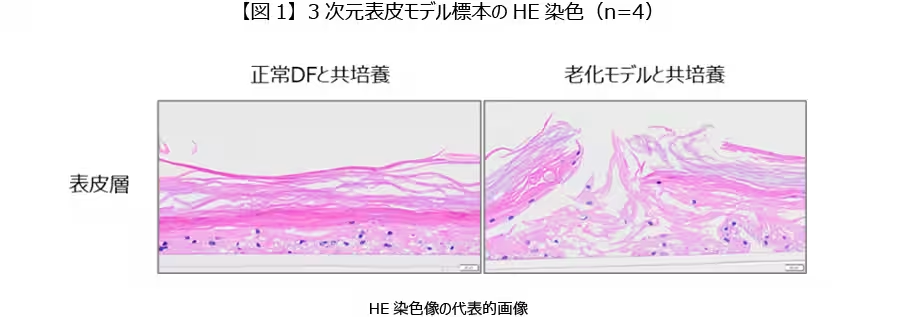

The Impact of Chronic Inflammation from Aging Dermal Cells on Skin Texture Revealed
Investigating the Surface Texture Changes in Skin from Chronic Inflammation Due to Aging Dermal Cells
Daiichi Sankyo Healthcare, headquartered in Tokyo, has recently disclosed findings regarding the impact of chronic inflammation caused by aging skin cells on the fine texture of the skin surface. This research was announced at the Japanese Society of Anti-Aging Medicine symposium held in June 2023.
The research indicates that the formation of small depressions on the skin's surface may lead to a dull complexion, making one appear older. Insights gained from this study indicate a promising avenue for developing anti-aging products that can help maintain a youthful appearance.
Background of the Research
Daiichi Sankyo Healthcare's exploration into the state of skin aging revealed that fine depressions on the skin's surface tend to increase with age. Furthermore, their unique studies showed that fibroblasts derived from older individuals secrete inflammatory cytokines and enzymes that degrade collagen, inducing a chronic inflammatory state in the dermis. This phenomenon, known as Senescence-Associated Secretory Phenotype (SASP), has not been thoroughly investigated regarding how the inflammatory cytokines it releases affect surrounding cells.
By studying the relationship between cellular aging in the dermis and the potential increase in chronic inflammation affecting the skin's surface texture, the company aimed to unravel how aged dermal fibroblasts impact the epidermal cells making up the skin surface, particularly concerning SASP factors.
Testing Methods and Findings
The skin comprises various layers, including the epidermis and dermis, each formed by epidermal cells and fibroblasts, respectively. To explore the direct interactions between these cell types, co-culture experiments were conducted using fibroblasts of varying aging levels, followed by histological evaluation using HE staining to differentiate tissue structures.
Influence of Aged Fibroblasts on Epidermal Cells
In co-culturing normal fibroblasts with aged model fibroblasts, observations revealed that epidermal models cultivated alongside aged fibroblasts exhibited an increased thickness in the epidermal layer, resulting in a notable increase in fine depressions. Moreover, in the aging model fibroblast observations, increased gene expression of FLG, a factor contributing to the epidermis, was noted, alongside key enzymes KLK5 and KLK7 involved in the maturation of the stratum corneum. This suggests these increases may disrupt the proper maturation of epidermal cells, contributing to the formation of fine skin depressions.
The Role of Chronic Inflammatory SASP Factors
To investigate the earlier findings further, researchers hypothesized the involvement of SASP factors secreted by aged fibroblasts. Neutralizing antibodies for representative SASP factors, TNFα and IL-6, were introduced into the aged fibroblast co-culture. Results showed that these antibodies significantly suppressed the expression levels related to stratum corneum formation, such as the enzyme KLK7 and the inflammatory cytokine IL-1β. Thus, it was demonstrated that SASP factors released from aged fibroblasts impact gene expression in the epidermis.
Future Prospects
This research clarifies that aged fibroblasts contribute to a thicker epidermis while disrupting the maturation of epidermal cells, leading to the surface texture's fine depressions. It suggests that chronic inflammation caused by aging fibroblasts, through the release of SASP factors, disrupts the balance necessary for maintaining the epidermis's homeostasis. By alleviating chronic inflammation associated with aging, it is anticipated that the increase in skin surface depressions can be prevented.
Daiichi Sankyo Healthcare aims to leverage these findings in future product development to enhance skin conditions and improve the quality of life.
Additional Information
Daiichi Sankyo Healthcare operates under the philosophy of responding to diverse medical needs by providing OTC pharmaceuticals. Expanding beyond OTC products, they now innovate in functional skincare, oral care, and food solutions, embodying their corporate slogan "Fit for You - a partner in creating a healthy lifestyle." Their mission is to promote self-care, enabling individuals to maintain health and beauty in society.
Read the full PDF report here





Topics Health)










【About Using Articles】
You can freely use the title and article content by linking to the page where the article is posted.
※ Images cannot be used.
【About Links】
Links are free to use.